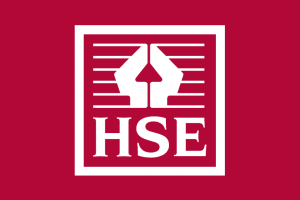The sad demise of JJB Sports

CONVICTED fraudster Chris Ronnie has fallen from a great height since the day in 2007 he swept into the boardroom at JJB Sports in Wigan having agreed a deal with long-serving chairman Dave Whelan to acquire his 27.5% stake in the retailer.
While Ronnie would proclaim proudly “I bought the business”, the reality was that he had borrowed millions of pounds from Icelandic banks to fund the £190m deal.
A colourful, confident character Ronnie, worked his way through the ranks in the sports retail sector from a Bramhall sports shop to senior roles with the likes of Umbro – then the supplier of England football kit – and Sports Division.
He earned £562,000 in the year he was sacked by JJB Sports for gross misconduct in bizarre circumstances – he lost control of his stake in the company amid the Icelandic banking crisis but had not notified the company.
During 18 months as chief executive of JJB the company’s share price collapsed from more than £2 to less than 3p.
The company’s fall was painful for investors, landlords and of course its home town of Wigan. While more than 2,200 job losses were announced on October 2012 as administrators were called in, it is thought the toll was actually much higher as the company had been closing stores for some time.
Just five years earlier it had 400 shops and was a solid, if not spectacular performer on the high street and stock market. It had successfully launched a health clubs business which grew quickly to a chain of 40.
Wigan Athletic chairman Dave Whelan built the chain up after buying one shop in 1971. He began to grow the business, firstly in the North West – a heartland for sports with a the biggest cluster of major professional football teams of anywhere – and it soon became a national player.
It had 120 shops by 1994 when it floated on the London Stock Exchange. Four years later it bought Sir Tom Hunter’s Sports Division, making it one of the biggest sports retailers in the country. Growth continued into the new millennium, successful new strategies were pursued, including one of launching value-for-money health clubs incorporating JJB shops. The company continued to grow sales and profits though, and was in good health under the leadership of Whelan and chief executive Tom Knight into the mid 2000s.
Ronnie’s strategy was to try and take JJB upmarket, which he did through the acquisition of Qube and the Original Shoe company. As the economy moved downwards, and as JD and Sports Direct began to grab market share from JJB, trading began to decline sharply. Despite the efforts of retail veteran Sir David Jones – brought in after the exit of Ronnie – and then former Dixons executive Keith Jones, it was all downhill from there on.
From 2010-12 the company’s retail estate more than halved as under-performing stores were jettisoned in two CVA deals with landlords. Institutional shareholders such as the Bill and Melinda Gates Foundation supported several multi-million cash calls as management sought to revive the retail offer with a greater emphasis on sports equipment.
In mid-2012 it secured another lifeline – £20m from US retailer Dick’s Sporting Goods and a further £10m from existing shareholders plus support from key suppliers Nike and adidas. Sadly, yet another slump in trading saw Dick’s take fright soon after and withdraw support, effectively leaving JJB high and dry and with nowhere else to turn.







